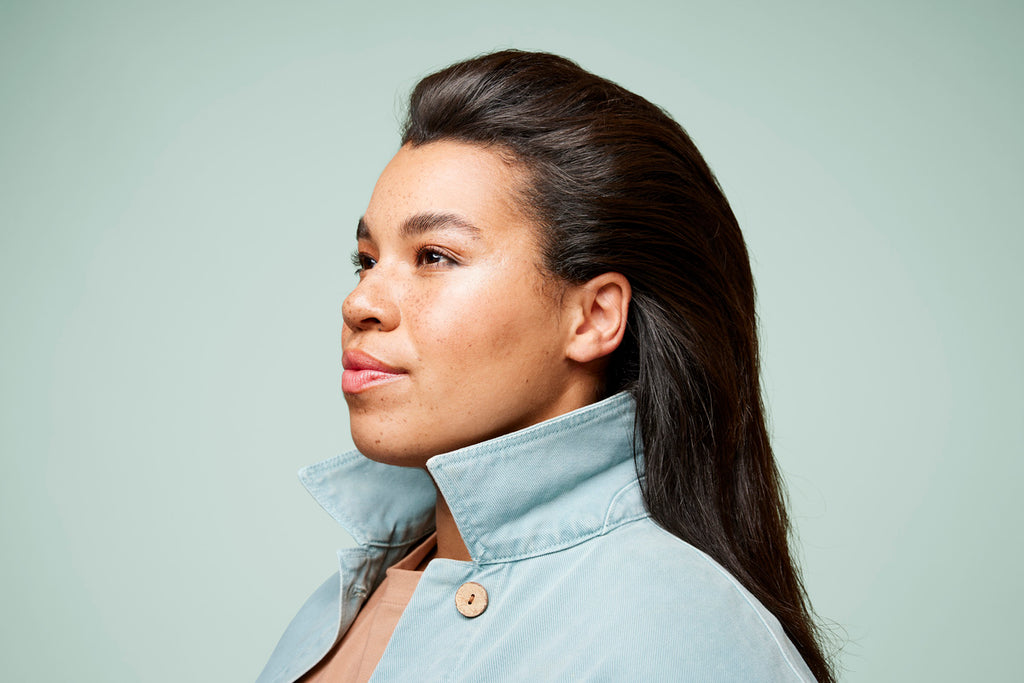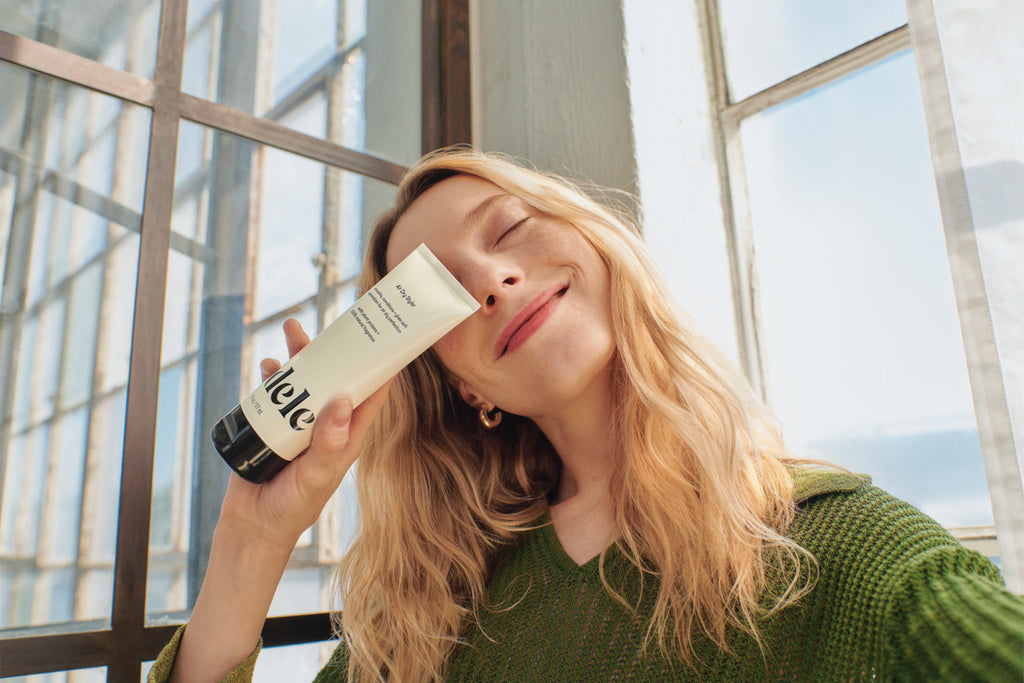Research estimates that 25–70% of people have a sensitive scalp. Scalp sensitivity can show up as tight, sore skin, a burning sensation, or frequent itchiness and flakes. You might experience discomfort after shampooing, trying a new hair product or wearing hairstyles like braids and ponytails.
However it shows up, it can be frustrating to deal with—especially if it’s hindering how you style and care for your hair.
Sometimes scalp sensitivity is a medical issue, but often it comes down to environmental and care-related factors. Let’s look at some common things that can make your scalp sensitive, and then we’ll share our best tips to keep it happy without giving up good hair days.
What causes a sensitive scalp?
Getting to the root of your scalp sensitivity can help you treat and prevent irritation. Here are some common reasons your scalp could be showing its sensitive side.
Weather
According to the National Institutes of Health, wind, cold, heat and sun exposure can make your scalp sensitive. Long-term exposure to air pollution can also cause sensitivity. (Here’s where to find info on your city’s air quality.)
Skin conditions
Of course, scalp health is related to overall skin health. If you have any of the following skin conditions, you may experience scalp sensitivity:
- dandruff (seborrheic dermatitis)
- eczema
- psoriasis
-
folliculitis (inflamed hair follicles that may look like acne)
A dermatologist can help diagnose and treat these conditions.
Products and treatments
Certain products can throw off your scalp microbiome and make it sensitive—particularly those that contain irritating ingredients like sulfates or strong fragrance. Your scalp microbiome is made up of a delicate balance of bacteria that keeps the skin healthy, so when something changes, it can mess with your scalp (and hair) health.
Other products to pay close attention to are chemical treatments like hair dyes and relaxers. These often contain harsh ingredients applied on or near the scalp, so you may experience tenderness or sensitivity after these treatments.
Hormones
Any hormonal changes, including entering puberty, pregnancy, postpartum or menopause, can cause scalp sensitivity. Some people find that their scalp is more sensitive during their menstrual cycle due to all the hormonal fluctuations at play.
Stress
Stress also affects hormones. An uptick in your stress levels can cause inflammation that may trigger or worsen scalp conditions.
Hair loss
Scalp sensitivity and hair loss often go hand in hand, since both tend to be connected to hormone shifts or medical conditions.
If you’re concerned about scalp irritation or hair loss, talk to your doctor or dermatologist.

Sensitive scalp haircare tips
To protect your sensitive scalp, you’ll want to take a good look at your haircare routine and figure out if you need to make some changes. That might mean saying goodbye to super-scented shampoos, hot-hot showers and tight topknots.
Giving your scalp a little extra TLC will pay off for your strands, too—after all, the scalp is where your hair’s journey begins!
Try these tips:
1. Choose fragrance-free products.
You might find that your scalp can handle lightly or naturally fragranced products, but you may also want to consider going fragrance-free. Our award-winning, fragrance-free Ultra Sensitive Shampoo and Ultra Sensitive Conditioner add shine, improve manageability and help prevent damage without irritating skin. They’re also accepted by the National Eczema Association.
2. Use sulfate-free shampoo.
Skip sulfates to avoid drying out and irritating your sensitive scalp.
3. Wash with lukewarm water.
When it comes to water temps, go Goldilocks—nothing too hot or too cold.
4. Avoid tight, heavy hairstyles.
Try not to wear styles that tug at your follicles since they can trigger inflammation and excess shedding. Instead, opt for loose updos, lightweight braids and gentle hair ties and accessories.
5. Keep styling products off your scalp.
Your sensitive scalp needs room to breathe. To prevent irritating buildup, avoid your roots when you apply leave-in moisturizers and styling products. (This goes for everyone, not just the sensitive folks.)
6. Patch test when trying new products.
Put a tiny dab of the product on a small area of your scalp and wait 72 hours to see how your skin reacts.











